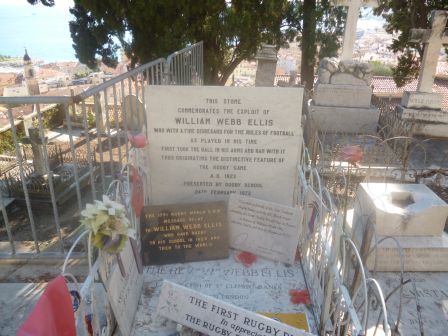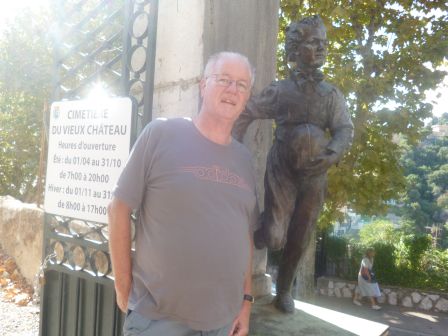"Lord, I don't ask that I should win, but please, please don't let me finish behind Akabusi."
William Webb Ellis
While on holiday in Menton in the South of France I visited a local cemetery with a significant sporting significance. As you probably know, the Rugby World Cup Trophy is called the Webb Ellis Trophy, in honour of the boy credited with picking up the ball during a game of football and running with the ball in his hands, so inventing the game of rugby. It is however, extremely unlikely that the incident actually happened or if it did had the significance that is now attributed to it. William Webb Ellis was born in 1806 and attended Rugby School from 1816 to 1825 and he was noted as a good scholar and a good cricketer. A plaque at Rugby School “commemorates the exploit of William Webb Ellis, who with a fine disregard fro the rules of football, as played in his time, first took the ball in his arms and ran with it, thus originating the distinctive feature of the Rugby game. AD 1823”.
The grave on a hill in Menton.

Tributes


The story of his part in the development of rugby first appeared in an article by Matthew Bloxham, published in the Rugby School magazine* in 1876, fifty-three years after the event. Doubts about the authenticity of the story were first raised in 1895 and is now pretty much discredited. Little is known about his life and he can therefore not be said to have made a significant contribution to the development of the relationship between sport and Christianity.


At the entrance to the cemetery
*The Meteor (Rugby School Magazine), October 1876).
See http://www.pshortell.demon.co.uk/rugby/ch2.htm quoting The ultimate Encyclopedia of Rugby, edited by Richard Bath and The World of Rugby1978

